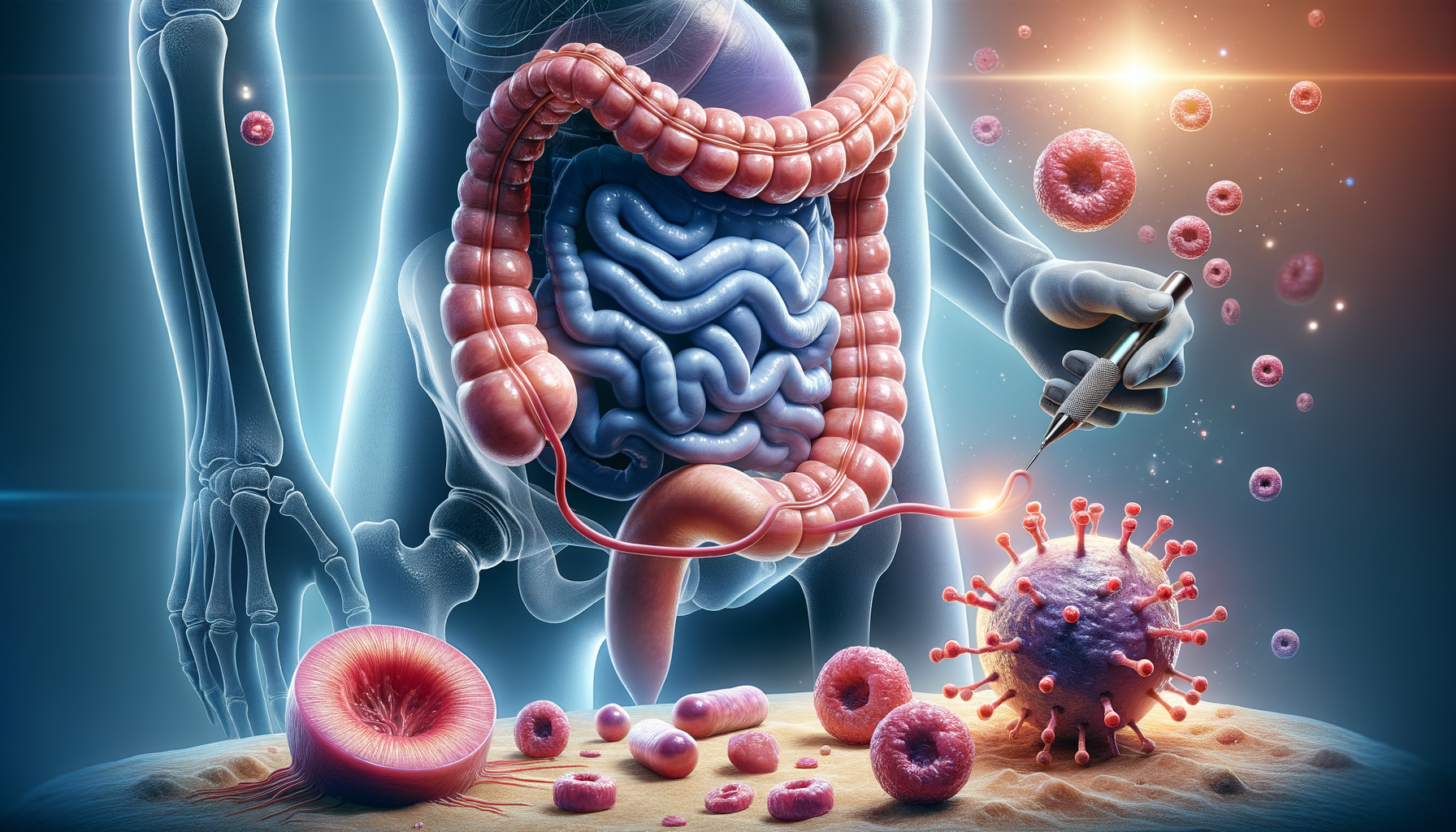Introduction to Colon Cancer
Colon cancer, also known as colorectal cancer, is a significant health issue worldwide. It occurs in the colon or rectum and is the third most common cancer diagnosed in both men and women. Understanding the intricacies of this disease is crucial because early detection can lead to more effective treatment and improved survival rates. The importance of awareness cannot be overstated, as it empowers individuals to seek timely medical advice and engage in preventative measures.
One of the key aspects of addressing colon cancer is understanding its risk factors. These include age, with most cases occurring in people over 50, a family history of the disease, certain genetic syndromes, and lifestyle factors such as diet, smoking, and alcohol consumption. By identifying these factors, individuals can take proactive steps to reduce their risk.
Regular screening is a powerful tool in the fight against colon cancer. Tests such as colonoscopies can detect early signs of cancer before symptoms appear, significantly improving the chances of successful treatment. In this article, we will delve into the causes, symptoms, diagnosis, and treatment options for colon cancer, providing a comprehensive overview of this critical health topic.
Causes and Risk Factors
The development of colon cancer is influenced by a combination of genetic and environmental factors. While the exact cause of colon cancer is not entirely understood, certain risk factors have been identified. Age is a primary risk factor, as the likelihood of developing colon cancer increases with age, particularly after 50. Additionally, a family history of colon cancer or polyps can elevate risk, suggesting a genetic predisposition.
Genetic mutations, such as those associated with hereditary nonpolyposis colorectal cancer (HNPCC) and familial adenomatous polyposis (FAP), are known to significantly increase the risk of colon cancer. These conditions underline the importance of genetic counseling and testing for individuals with a family history of colon cancer.
Lifestyle choices also play a crucial role. A diet high in red and processed meats, low physical activity, obesity, smoking, and excessive alcohol consumption have all been linked to an increased risk of colon cancer. By making healthier lifestyle choices, individuals can reduce their risk and promote overall well-being.
- Age over 50
- Family history of colon cancer
- Genetic mutations (HNPCC, FAP)
- Diet high in red and processed meats
- Low physical activity
- Obesity
- Smoking and alcohol consumption
Symptoms and Early Detection
Colon cancer often begins as noncancerous polyps, which can develop into cancer over time. In its early stages, colon cancer may not present noticeable symptoms, which is why screening is vital. However, as the disease progresses, several symptoms might appear, prompting individuals to seek medical advice.
Common symptoms of colon cancer include a persistent change in bowel habits, such as diarrhea or constipation, rectal bleeding or blood in the stool, abdominal discomfort, and unexplained weight loss. Fatigue and weakness may also occur as the cancer advances.
Early detection through screening can significantly improve prognosis. Colonoscopies are the most effective screening tool, allowing for the removal of polyps before they become cancerous. Other tests, such as fecal occult blood tests and sigmoidoscopies, can also aid in early detection. Regular screening is recommended for individuals over 50 or those with a family history of colon cancer.
- Persistent change in bowel habits
- Rectal bleeding or blood in stool
- Abdominal discomfort
- Unexplained weight loss
- Fatigue and weakness
Diagnosis and Treatment Options
Diagnosing colon cancer typically involves a combination of medical history evaluation, physical examinations, and diagnostic tests. A colonoscopy is the gold standard for diagnosing colon cancer, as it allows for direct visualization of the colon and the removal of suspicious polyps for biopsy.
Once diagnosed, the treatment plan for colon cancer depends on the stage of the disease. Surgery is the most common treatment for early-stage colon cancer, often involving the removal of the tumor and surrounding tissue. In more advanced stages, chemotherapy and radiation therapy may be employed to target cancer cells and reduce tumor size.
Recent advancements in treatment options include targeted therapies and immunotherapy, which offer new hope for patients with advanced colon cancer. These treatments work by targeting specific molecules involved in cancer growth or by harnessing the body’s immune system to fight cancer cells.
- Colonoscopy for diagnosis
- Surgery for early-stage cancer
- Chemotherapy and radiation for advanced stages
- Targeted therapies and immunotherapy
Prevention and Lifestyle Changes
Prevention is a powerful tool in reducing the risk of colon cancer. While some risk factors, such as age and genetics, cannot be changed, lifestyle modifications can significantly impact an individual’s risk of developing the disease.
A diet rich in fruits, vegetables, and whole grains, combined with regular physical activity, can help maintain a healthy weight and reduce the risk of colon cancer. Limiting the intake of red and processed meats, as well as avoiding smoking and excessive alcohol consumption, are also recommended preventative measures.
Participating in regular screening programs is crucial for early detection and prevention. For individuals with a family history of colon cancer, genetic counseling and earlier screening may be advised. By adopting a proactive approach to health, individuals can take control of their risk factors and promote long-term wellness.
- Diet rich in fruits, vegetables, and whole grains
- Regular physical activity
- Maintaining a healthy weight
- Limiting red and processed meats
- Avoiding smoking and excessive alcohol








